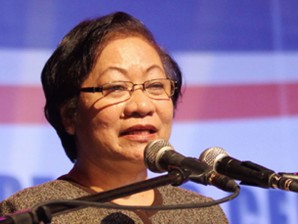Labor Secretary Rosalinda Dimapilis-Baldoz said there should be a “balanced approach” to the crafting of laws on additional nonworking holidays, saying lawmakers should take into consideration the effects of additional nonworking holidays on overall productivity and competitiveness of the economy, particularly on labor and employment.
She also cautioned local executives about declaring additional nonworking local holidays.
“Declaring holidays has implications on productivity and competitiveness. It is associated with issues on rights at work,” she said.
The variability in the number and scheduling of holidays also affect the capability of firms “to coordinate a mutually desired equilibrium” of wages and labor hours, she said.
“Reviewing the implementation of holidays is necessary to contribute to the Philippine development goal of inclusive growth, through decent and productive work,” Baldoz said.
Effects of holidays
She said holidays have both economic and sociological effects, citing a report from the Institute of Labor Studies (ILS) on the implementation of holidays in the Philippines.
She also cited a report from the Bureau of Working Conditions (BWC) showing that the Philippines has more holidays—working and nonworking—than at least eight other countries in Asia. Only China has more holidays, 29, than the Philippines.
“The Philippines has 12 regular holidays and three special days in any given year. We have also another three special days, on the average, which the President may declare through a proclamation. These are Black Saturday, Edsa Revolution (Feb. 25), and All Soul’s Day (Nov. 2). And at any given year, there are two local holidays on the average, be it municipal, city or provincial, and an average of four days, based on experience, of inclement weather,” said Baldoz.
She said local holidays now number 184 based on either a presidential proclamation or an act of the Congress. Of this number, one is a regional holiday, 41 are provincial and 142 are city or municipal holidays.
Negative impact
The ILS, in a policy brief, noted that the so-called holiday economics—moving the celebration of holidays to the nearest Friday or Monday to create long weekends to enliven domestic tourism—seemed to have created a negative, or at best, insignificant impact on the level of tourism activities and on employment.
“The contention against holiday economics is that implementing longer periods of time off work is not enough to boost the domestic tourism industry because of the high costs of travel and the low levels of disposable income,” it said.
The ILS also noted the impact of more holidays on small businesses, which comprise the majority in the country, which may have less capability to bear the costs of a higher wage bill if they need to operate during holidays.
No work, no pay
Meanwhile, the BWC has found that more special nonworking holidays create negative rather than positive welfare effects because the principle of “no work, no pay” applies.
“For daily paid workers, the opportunity to produce goods of economic value and to earn wages is lost during a special nonworking day,” it observed, saying that the cost of labor increases by 30 percent if the day is worked.
Both the ILS and the BWC agreed that the increase in labor cost was both artificial and inefficient for employers because it is not accompanied by an increase in productivity.
Baldoz said that for 2012, a total of 18 holidays have been declared by President Aquino’s Proclamation No. 95. Of the 18 holidays, 12 are regular holidays and six are special nonworking days.
There are also a number of bills pending in Congress proposing to declare various holidays.
